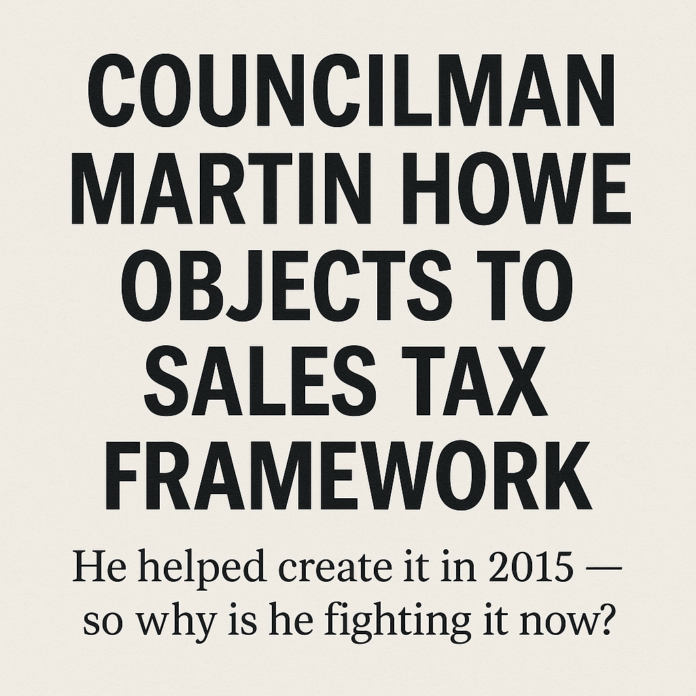During recent budget talks and council meetings, Councilman Martin Howe has raised repeated concerns about how Clarksburg’s 1% sales tax revenue is being spent—most recently opposing the purchase of two Public Works trucks and a trommel with money from the Sales and Use Tax Fund. He’s made it clear: he supports the work of the department, just not this funding source.
It’s a fair concern—fiscal caution is a good trait in any elected official. But this particular stance raises an eyebrow when you remember one important detail: Martin Howe was city manager in 2015 when this tax was created. He helped design the very system he now disagrees with.
The 1% municipal sales tax was introduced as part of Clarksburg’s Home Rule application and was approved by Council in a 6–1 vote. The framework for how that money should be used is spelled out in city code, with five priority areas:
- Strengthen police and firefighter pensions;
- Make debt payments on bonds for infrastructure and economic development;
- Direct infrastructure improvements;
- Support economic development;
- And finally, transfer funds to the General Fund, with Council approval.
Here’s where it gets tricky: while the first two priorities are fairly rigid, the last three—especially the fifth—leave a lot of room for interpretation. Council can argue nearly anything qualifies as economic development or infrastructure. And “transfers to the General Fund,” once allowed, can fund any and all kinds of day-to-day operations.
So, yes—Howe’s point that the fund’s current usage feels loose has some merit. But if the structure is vague, that’s not on today’s council. It’s a design issue that dates back to 2015. If Howe wanted tighter constraints or clearer boundaries, he had the power to write them in at the time. He didn’t. I have also not heard him propose changing the rules since he has joined council.
Today, Council is using the fund as outlined—replacing broken equipment, improving service delivery, and maintaining city operations. Are there risks in that flexibility? Absolutely. But they were baked into the policy from the start. If that was not Howe’s vision at the time he was undermined by someone else who was writing the policy.
I believe Councilman Howe’s concerns come from a good place and I don’t want to seem like I am criticizing him, his commitment to fiscal responsibility is not in question. Still, it’s difficult to square his current frustration with the fact that the very ambiguity he now opposes was part of the system he helped put in place. It comes off like just trying to be difficult and playing the same card over and over without ever proposing changes to the ordinance. If you don’t like it, get three others to join you in changing it.
-Gary Keith, Clarksburg News and Observer
READ THE ORDINANCE FOR YOUSELF< CLICK HERE
Related article below…




